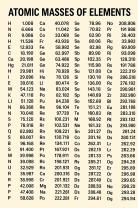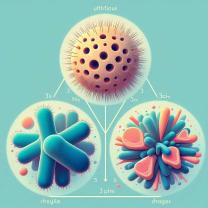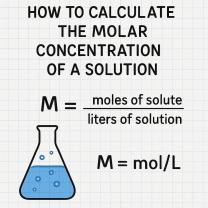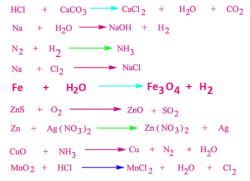Can microorganisms cause autoimmune disease?
Autoimmune diseases occur when the immune system mistakenly targets and attacks the body's own cells and tissues. While the exact causes of autoimmune diseases are complex and not fully understood, there is evidence to suggest that microorganisms, such as bacteria and viruses, may play a role in triggering or exacerbating certain autoimmune conditions.
Here are some ways in which microorganisms can be linked to autoimmune diseases:
Molecular Mimicry: Some microorganisms have proteins or structures that are similar to those found in human tissues. When the immune system mounts a response against the microorganism, it may also produce antibodies that mistakenly target the body's own tissues, leading to autoimmune reactions. This is known as molecular mimicry.
Infections as Triggers: Infections, particularly viral infections, can sometimes trigger autoimmune diseases in individuals who are genetically predisposed to these conditions. For example, certain viruses, such as Epstein-Barr virus (EBV), have been associated with an increased risk of developing autoimmune diseases like systemic lupus erythematosus (SLE) or multiple sclerosis (MS).
Dysregulation of the Immune System: Infections can disrupt the normal functioning of the immune system, potentially leading to autoimmune responses. Chronic infections may keep the immune system in a state of overactivity, increasing the likelihood of autoimmune reactions.
Microbiome Influence: The microbiome, which consists of the microorganisms that inhabit the human body, including the gut, has been linked to immune system regulation. Changes in the composition of the microbiome may influence immune function and potentially contribute to autoimmune diseases.
It's important to note that not all autoimmune diseases are directly linked to infections or microorganisms, and the specific causes and triggers of these diseases can vary widely. Autoimmune diseases are often the result of a complex interplay between genetic, environmental, and immunological factors.
Research in this field is ongoing, and our understanding of the relationship between microorganisms and autoimmune diseases continues to evolve. While microorganisms can be associated with the development or exacerbation of certain autoimmune conditions, more research is needed to fully elucidate these connections and develop targeted treatments or prevention strategies. If you have concerns about autoimmune diseases or infections, it's advisable to consult with a healthcare professional for personalized guidance and medical evaluation.













